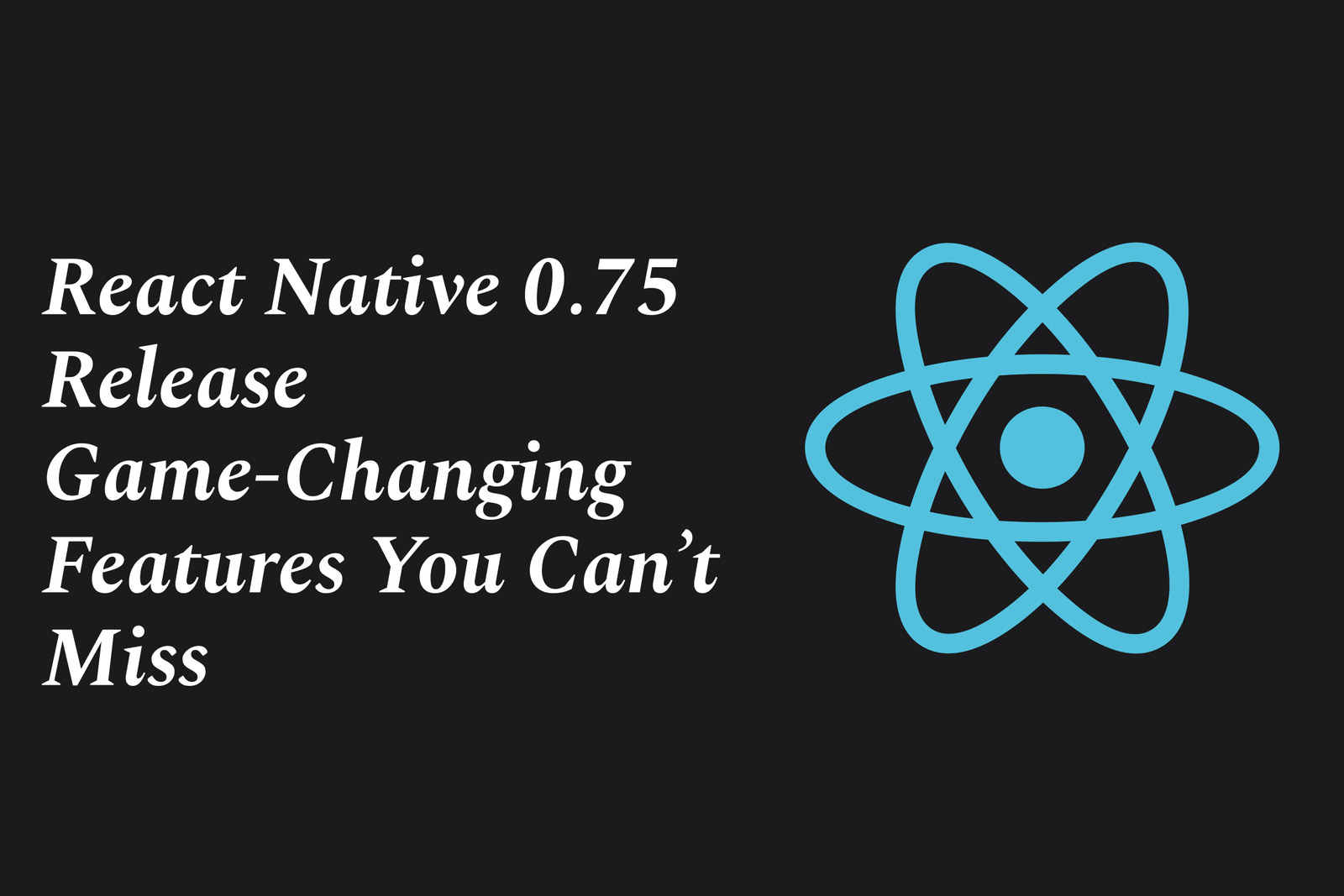React Native 0.75 Release: Game-Changing Features You Can?T Miss
React Native 0.75 brings game-changing features like the New Architecture as default, official support for percentage-based layouts, improved project templates, and vital bug fixes—boosting performance, flexibility, and developer experience for building modern mobile apps.
React Native 0.75 Release: Game Changing Features You Can’t Miss
1 ) New Architecture Stabilization as Default
React Native 0.75 marks a significant milestone by setting the New Architecture as the default. This revamped architecture is designed to improve app performance, enable better interoperability with native modules, and simplify development. The update encourages developers to adopt a stable, modern foundation for future projects.
2 ) Support for Percentage Values in Layout
A notable addition in this release is the official support for percentage values within React Native layouts. This enhancement allows developers greater flexibility and precision in designing responsive UI components that adapt smoothly to different screen sizes.
3 ) Template and Initialization Updates
The 0.75 release includes updated templates and initialization workflows, streamlining the process of bootstrapping new React Native projects. These updates reduce setup complexity and help kickstart development with best practices baked in.
4 ) Incremental Improvements & Bug Fixes
Besides major features, React Native 0.75 encompasses a broad range of bug fixes and refinements, stabilizing the platform and improving developer experience. These include fixes in tooling, compatibility enhancements, and improved documentation.
5 ) Forward Looking Focus Toward Future React Native Releases
The release lays groundwork that aligns with upcoming React Native versions, including version 0.76 and beyond, where even more robust support for the New Architecture and improved developer tools like React Native DevTools will be featured.
Summary:
React Native 0.75 is a pivotal release that delivers crucial architecture upgrades, enhanced layout capabilities with percentage support, and smoother project setup. This update equips developers to build scalable, performant apps with modern tooling and solidifies the foundation for React Native’s future innovations. If you are not yet using the New Architecture, this release strongly motivates transitioning to stay current and benefit from ongoing improvements.
https://justacademy.in/news-detail/react-native-expo-bare-workflow:-what-you-should-know
https://justacademy.in/news-detail/building-3d-interfaces-in-flutter
https://justacademy.in/news-detail/react-native-0.74-released:-what?s-new?
https://justacademy.in/news-detail/building-pwas-with-flutter-in-2025
https://justacademy.in/news-detail/remote-flutter-jobs-in-india-2025
Related Posts
Java supports GDPR and data privacy by enabling secure data handling through encryption, controlled access, and precise data management. It allows developers to minimize PII exposure, ensure data confidentiality, and design workflows that comply with data protection regulations effectively.
Java code quality tools have evolved to include advanced static analysis, integrated security checks, and AI-powered code reviews. These updates help developers detect bugs, enforce coding standards, and enhance security, streamlining the development process and improving overall code reliability.
Java remains a cornerstone in big tech companies, evolving with modern features like records, pattern matching, and virtual threads. Its robust ecosystem, enhanced performance, and growing AI integrations keep it vital for both legacy systems and innovative new projects.
Java and CI/CD pipeline optimizations streamline Java application development by automating builds, tests, and deployments. They improve efficiency through parallelization, caching, and secure secrets management, enabling faster feedback loops and more reliable, scalable software delivery.
Java supports modern cryptography standards through its flexible Java Cryptography Architecture (JCA), enabling integration of advanced algorithms like AES, EdDSA, and post-quantum tools. Libraries like Bouncy Castle offer FIPS-certified, hardware-accelerated implementations for secure development.
Java 23 enhances record patterns by enabling concise, direct destructuring of record components within pattern matching, simplifying type checks and data extraction. This improvement boosts code readability and expressiveness by reducing boilerplate in handling immutable data classes.
Java remains a top choice for mobile app backends, powering scalable, secure, and high-performance server-side solutions. Latest trends include cloud-native microservices, reactive programming, and enhanced JVM optimizations, enabling efficient, flexible, and robust mobile backend development.
Java SE 24 and LTS Java SE 21 offer enhanced features and performance, while Apache Spark 4.0.0 introduces Scala 2.13 support and advanced ML and SQL capabilities. Together, they empower developers to build scalable, high-performance data applications with modern tools.
JUnit 5 modernizes Java testing with a modular architecture, improved assertions, and seamless Java 8+ support. Beyond JUnit, tools like Mockito and AssertJ enhance mocking and assertions, creating a powerful, flexible ecosystem for writing clean, efficient Java unit tests.
Java plays a pivotal role in cloud automation tools by providing a robust, platform-independent language used to build scalable automation frameworks like Jenkins and Selenium, enabling efficient CI/CD pipelines, testing, and orchestration across diverse cloud environments.










